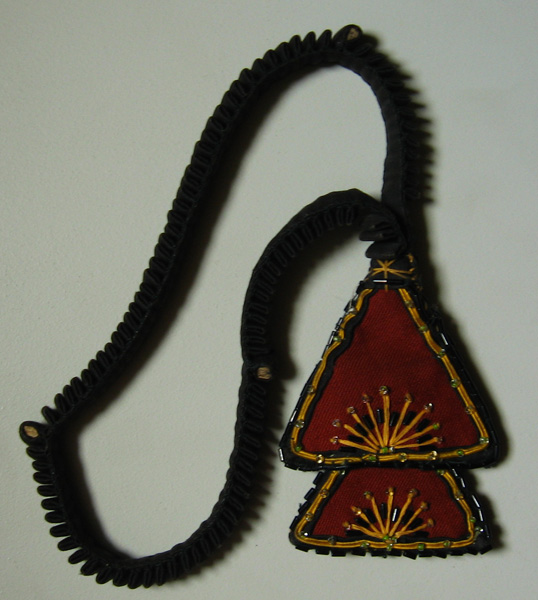|
Bespopovtsy
Bespopovtsy ( rus, беспоповцы, p=bʲɪspɐˈpoft͡sɨ, "priestless ones") are Priestless Old Believers that reject Nikonite priests. They are one of the two major strains of Old Believers. Priestless Old Believers may have evolved into the first Spiritual Christians which were divided into various and diverse tribal sects including: Pomortsy, Fedoseyans, Filippians, ''Beguny'' ("Runners"), ''Netovtsy''/''Netovshchina'', and many others. Some reject priests and a number of church rites, such as the Eucharist, believing that any priest or hierarch who has used the Nikonite Rites has forfeited apostolic succession. Others still believe in the existence of a priesthood, but happen to find themselves without priests. Many such sects have historically received Nikonite priests that have publicly repented from the reforms of Patriarch Nikon. Sources * Crummey, Robert O. ''The Old Believers & The World Of Antichrist; The Vyg Community & The Russian State'', Wisconsin U.P., 197 ... [...More Info...] [...Related Items...] OR: [Wikipedia] [Google] [Baidu] |
Fedoseyans
Fedoseevtsy, also Fedoseyans (федосеевцы, феодосиевцы in Russian), sometimes anglicised as Theodosians, comprise a dissident religious movement formed in Imperial Russia. They have become one of the denominations among the Bespopovtsy (the priestless Old Believers). The Fedoseevtsy movement, founded by an ex-deacon (1661-1711), originated amidst Old Believers (mostly peasants and posad people) in Northwest Russia. The Fedoseevtsy disapproved of a certain group within the Bespopovtsy, namely the Pomortsy, who had been diverging from the strict principles of the Old Believers and had adopted the custom of praying for the Tsar (моление за царя). Initially, the Fedoseevtsy were irreconcilable towards serfdom in Russia and observed strict asceticism, negating the institution of marriage. In the late-18th century, the Fedoseevtsy centered on a group led by (1731-1809) with their all-Russian "headquarters" at the Preobrazhenskoye cemetery in Mosc ... [...More Info...] [...Related Items...] OR: [Wikipedia] [Google] [Baidu] |
Pomortsy
The Pomorian Old Orthodox Church ( rus, Древлеправославная поморская церковь, Drevlepravoslavnaya pomorskaya tserkov), also known as the Pomorian Church, Danilovtsy, Danilov's confession, or simply as Pomorians, is a branch of the priestless faction of the Old Believers, born of a schism within the Russian Orthodox Church at the end of the 17th century. They should not be confused with Pomors, which were people who inhabited the coast of the White Sea. Pomortsy (russian: поморцы) was founded in Russian Karelia, by the Vyg River (russian: Выг), by Danila Vikulin and the Denisov brothers. It became an official registered organization in 1909, after the "Freedom of Religion" manifesto was published on April 17, 1905, although it existed prior to that. The Pomorian Church saw several splits occur since its inception in 1694, including the Filippians and Fedoseyans who refused to pray for the Czar (моление за царя), and a major ... [...More Info...] [...Related Items...] OR: [Wikipedia] [Google] [Baidu] |
Filippians
Filippians or Philippians () was a ''soglasiye'' (confession, literally, "agreement") of the Bespopovtsy (the "priestless") strain of Old Believers. They detached themselves from Pomortsy under the leadership of a "teacher" Filipp at the beginning of the 18th century. Because of the repressions of the government, they started practicing self-immolation as a means for the "preservation of the faith". In the second half of the 18th century, their fanaticism Fanaticism (from the Latin adverb ''fānāticē'' ren-''fānāticus''; enthusiastic, ecstatic; raging, fanatical, furious is a belief or behavior involving uncritical zeal or an obsessive enthusiasm. Definitions Philosopher George Santayan ... decreased, and several other confessions were spun off: Aaronovtsy (Aaron's Confession), Shepherd's Confession (пастухово согласие), and many others. Old Believer movement Christian denominations established in the 18th century {{Orthodoxy-stub ... [...More Info...] [...Related Items...] OR: [Wikipedia] [Google] [Baidu] |
Nikonites
Nikonites, also known as Nikonians, are followers of the main current of the Russian Orthodox Church, which accepted the reforms undertaken during the reign of Patriarch Nikon Nikon ( ru , Ни́кон, Old Russian: ''Нїконъ''), born Nikita Minin (''Никита Минин''; 7 May 1605 – 17 August 1681) was the seventh Patriarch of Moscow and all Rus' of the Russian Orthodox Church, serving officially from ...—as opposed to the Old Believers, who rejected the reforms and maintain strong religious traditions that predate them. Russian Orthodox Church in Russia History of the Russian Orthodox Church {{Russia-stub ... [...More Info...] [...Related Items...] OR: [Wikipedia] [Google] [Baidu] |
Барнаул
Barnaul ( rus, Барнау́л, p=bərnɐˈul) is the largest city and administrative centre of Altai Krai, Russia, located at the confluence of the Barnaulka and Ob Rivers in the West Siberian Plain. As of the 2021 Census, its population was 630,877,making it the 20th largest city in Russia and the fourth largest in the Siberian Federal District. Located in the south of western Siberia on the left bank of the Ob River, Barnaul is a major transport, industrial, cultural, medical and educational hub of Siberia. Barnaul was founded by the wealthy Demidov family, who intended to develop the production of copper and silver, which continued after the factories were taken over by the Crown. Barnaul became a major centre of silver production in Russia. Barnaul was granted city status in 1771. Administrative and municipal status Barnaul is the administrative centre of the krai.Charter of Altai Krai, Article 6 Within the framework of administrative divisions, it is, t ... [...More Info...] [...Related Items...] OR: [Wikipedia] [Google] [Baidu] |

